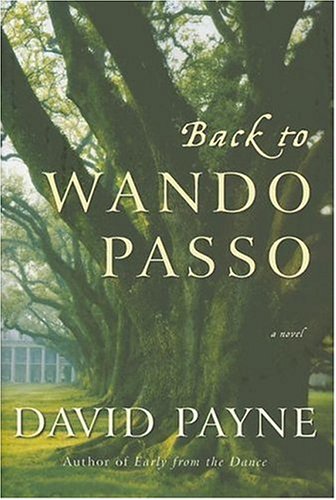Back To Wando Passo
Ransom Hill is desperately hopeful that his problems will work out because he has made the decision to turn over a new leaf and be all that he can be for his family and friends. That includes his disillusioned wife, Clare, who wants to give their relationship one more “run” for “the sake of the children.” To add to that, he’s a washed-out, mentally ill composer/singer/ex-rock band leader. Not too much is fresh here, except for some memorable conversations about the origin and development of blues, soul, and rock music.
The novel becomes gripping only when the reader begins to comprehend the parallel story of Clare’s ancestors, Harlan and Addie DeLay, a family living in a most unusual style for Civil War times. Harlan’s Daddy had married a Cuban woman, and the ramifications of that sanctified union hauntingly reverberate through the DeLay children and the Hill family as well.
The plot seems rather predictable, but two threads save this story – written in the lush, prosaic style reminiscent of Pat Conroy – from tedium. One involves the mysterious voodoo practice of Cuba transported to sleepy South Carolina in a manner that grips its adherents and those related to these followers, propelling them toward a frighteningly complex and dangerous future. The other incorporates interracial relationships virtually unthinkable in Civil War times, and which even today are fraught with prejudicial baggage the “white” men and women cannot seem to avoid, deny, or escape – or can they? David Payne leaves the reader seriously contemplating the powerful effect of religions, superstition, and race that has so deeply permeated American history and culture.










